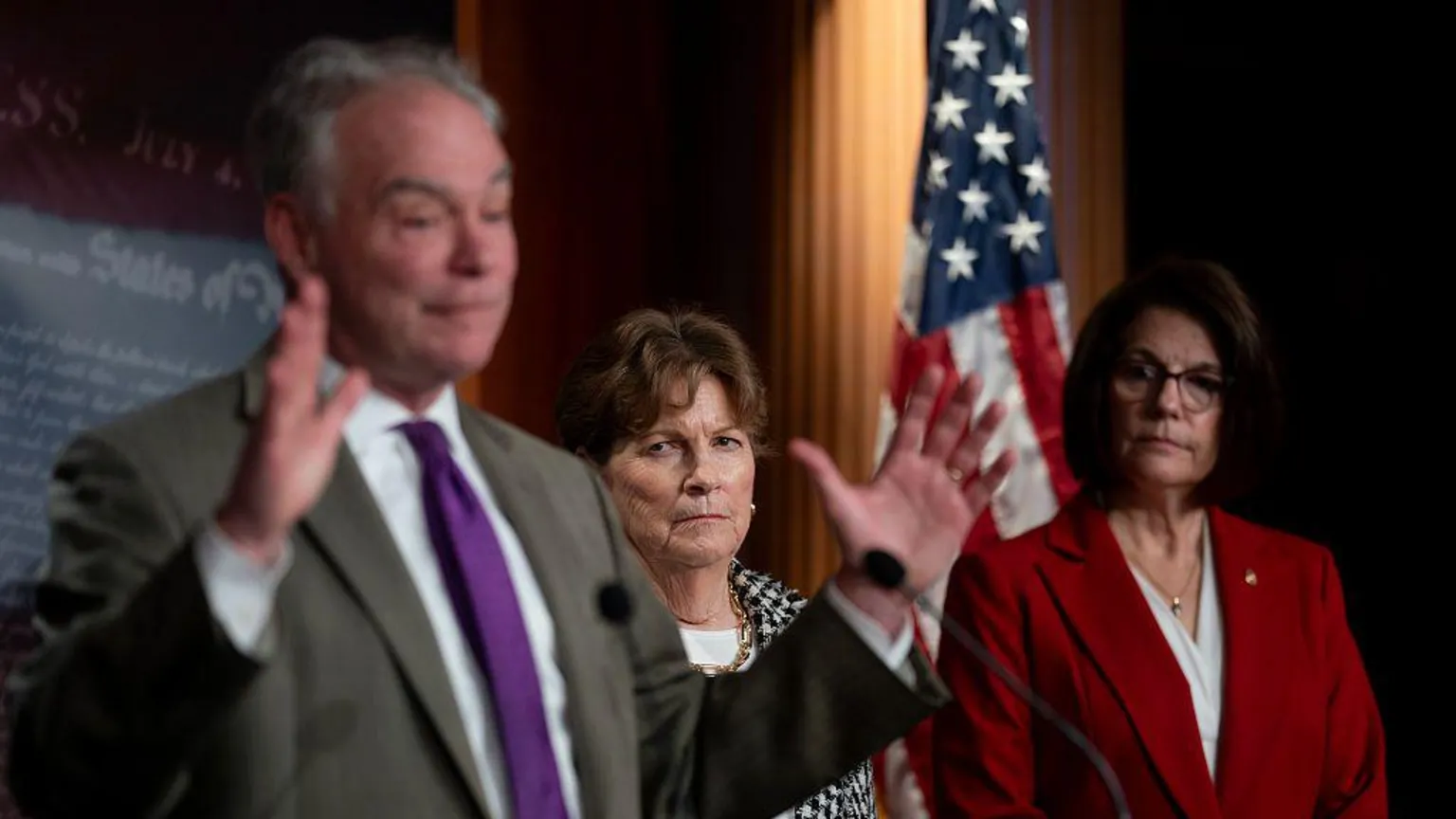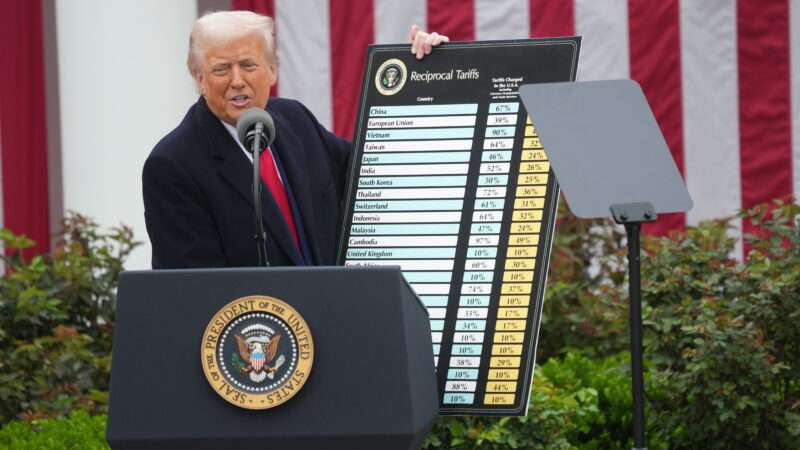Over the last couple days I’ve argued both that the denouement of the shutdown standoff was a flub and an embarrassment and also that the overall situation is going reasonably well. This isn’t defending the members of the Democratic caucus. I don’t need to defend or attack them because I’m mostly indifferent to them. I’m looking to a half-dozen year or more time horizon in which almost all the current senators need to be convinced to take a dramatically different approach to politics or purged from the ranks of elected office. Let’s call it Change or Purge. To me, from March to now was a big step forward. The way of operating during this shutdown was very different from what happened in March. And the way it ended — here I know many disagree with me — doesn’t negate what happened during the last five weeks, either in terms of the changed behavior or what was accomplished. This is a multi-course treatment. The results of the first course were encouraging. So, on to the remaining nine.
Since I’ve focused on this Change or Purge framework in this post I’d like to flesh out some of what that means. Of course a lot of this is either characterological or a way of using power. That can be hard to capture in bullet points or outside the context of a specific political situation. But there are a series of things senators support or don’t support that gives a clear indication of whether they are serious about confronting the challenge of the moment or battling back from Trumpism.
What does that mean? I think of it as: You live in a disaster zone. The floods and hurricanes are going to be twice as strong and three times as frequent going forward. So you’ve got to retrofit the house (this means legislation, mostly) and get in the habit of handling natural disasters (this means their approach to power). So what counts in this context? Here are five things I would want to ask and get an answer on from every Democratic senator or candidate. Think of it another way: You’re new management coming in to turn around a failing company. You want to sit down with every employee right after you take over to see if they’re part of the solution or part of the problem. That’s the Status Interview. Here are the five questions.
One: The filibuster. If you support keeping the filibuster you are not serious about moving the country forward in any positive direction. Unless you’re a Democratic senator from a red state — holding a seat probably no one else could hold — you should absolutely be primaried with the intent of removing you from office at the first opportunity. None of the legislation that is required to retrofit the house can happen with the filibuster in place. If you support the filibuster that means that your response to Trumpite autocracy is to do nothing and hope for the best. That’s unacceptable and you need to go. What’s so important about the filibuster question is not only how essential it is itself. It’s that there’s no reason not to do it. The filibuster is an historical accident which perverts how the Constitution is supposed to work. There are a number of things the moment requires which cut hard against our civic acculturation. They might not be justified in ordinary times but they are now. The filibuster isn’t anything like that. It should be a gimme. It’s a bad thing in every way. If you support the filibuster you are either a fraud, haven’t seriously considered the situation or don’t care. None of those three possibilities is acceptable.
Two: Supreme Court reform. I said above that some of the decisions are hard. They cut against a lot of what we were taught about political life. This is one of them. It’s only in the last three or four years that I’ve come around to the necessity of it and it’s still sometimes hard to get my head around. But it is essential. With the filibuster in place, no broader anti-authoritarian reform, no retrofitting the house is possible. It’s the same with the Supreme Court. The current Republican majority is thoroughly corrupt and has hijacked the Constitution. They have cut free not only from precedent but from any consistent or coherent theory of the Constitution, no matter how wrongheaded. The purpose of the high court is not to run the country. It is to render decisions on points of constitutional ambiguity in a good faith and broadly consistent manner. It is now engaged in purely outcome-driven reasoning, mixing and matching doctrines and modes of jurisprudence depending on the desired ends, with the aim of furthering autocratic and Republican rule. That is the heart of the corruption. Passing laws doesn’t matter if they can and will be discarded simply because six lifetime appointees don’t like them. That’s a perversion of the constitutional order. I know this one is hard to swallow for many people. It doesn’t come easily to me either. But the facts of the situation and fidelity to the Constitution require it. I’m not going to get into the specific kind of reform here. There are various ways to go about it. You can judge it by the end result. If you are for leaving intact the corrupt Republican majority’s absolute control over the political and partisan direction of the country, you should leave or be driven from office.
From here the list becomes more diffuse. But that only shows the centrality of these first two questions. I would almost say that your list could be limited to these two things. They’re far from the only things needed. But the answers to those two questions will give you a pretty good indication of where someone would be on every other point. Still, the rest are important.
Three: Statehood. Making DC and Puerto Rico into states isn’t quite as essential as points one and two. They aren’t sine qua nons that stand in the path of anything else happening. But they’re very important. The most important reason for making DC and Puerto Rico states is that DC and Puerto Rico should in fact be states. (In any other advanced country it would seem bizarre if two jurisdictions just arbitrarily didn’t have the political rights as everyone else.) I lived in DC from 1999 to 2004. It was a bummer not having congressional representation. But the harm was largely notional, a matter of principle. In practice, life in DC wasn’t that different from Maryland or Virginia. What we’ve seen over the last year makes clear this is a very real harm and deprivation of rights, not at all theoretical thing. A renegade president can treat the district and its citizens as conquered territory. DC absolutely needs to be given the sovereignty and structural protections of statehood. The other issue is that making DC and Puerto Rico into states is a very legitimate opportunity to redress some of the current structural Republican advantage in the Senate. That’s good on principle and good politics. A hard swallow? Maybe. But if you’re not up for it I bet you won’t be up for a lot of critical things.
Four: Clearing the law books. As we’ve seen over the last year, the U.S. federal code is full of laws which assume the sitting president broadly supports the federal Constitution, civic democracy and the best interests of all American citizens. We know now that that is a dangerous assumption. There are lots of laws which grant the president vast powers if things get super weird. And the president is in charge of deciding whether they’re weird. A lot of this is the dirty work of the corrupt Republican majority on the Supreme Court. But a lot of the laws are genuinely far too ambiguous. We need to change all of those laws. That involves potentially creating different harms by weakening the presidency. There are cases when you want a president to be able to move expeditiously and effectively in emergencies. Laws will have to be revised with that contrary danger in mind. But right now the balance is far too much in the direction of presidential power. The president can’t be allowed to use the U.S. military (which most certainly includes the Guard) to overawe or effectively conquer states that don’t support him politically. Could a president still do this even with new laws in place? Possibly. But you need it to be crystal clear that when it does the president is violating black letter federal law as well as the Constitution.
Five: Outlaw extreme gerrymandering. A couple things here require explanation. I say “extreme” gerrymandering. And that may sound like I’m okay or we should be okay with some gerrymandering. That’s not it exactly. I say this because there is no objectively correct map. All legislative maps involve decisions and advantages here or there. I add “extreme” as a matter of realism more than license. But it is essential to have a federal legal framework governing how maps can be legitimately drawn. They cannot be drawn for partisan advantage, to disempower or empower one racial group over another or one region over another. Again there are no perfect maps and no perfect rules. But it cannot be a free-for-all. Because of the corrupt Republican majority on the court it’s now a free-for-all. This may seem off-message or hypocritical since Democrats across the country are now rushing to gerrymander their maps. There’s no contradiction whatsoever. You can’t have one set of rules in one part of the country and a different one in another. This is an opportunity to state a far broader principle: you cannot have Democrats responsible for winning power and saving the republic and simultaneously responsible for honoring a set of norms the right has already destroyed. That’s not how it works. That’s not how you should think it should work if you’re serious about using power and know what using it requires. Every representative elected on a gerrymandered map should be committed to supporting a real federal gerrymandering law. And that is a reminder of the centrality of filibuster and Supreme Court reform. Without the first, there’s no federal law. And without the second the law is meaningless since it will simply be rejected by the corrupt Republican majority for some made-up reason.
I thought of various other things to add here. But these are more than enough to separate the senatorial wheat from the chaff. It’s not an exhaustive list. It’s not intended to be. It’s a list to help people make sense of whether a senator or a Senate candidate is ready to at least try to rein in Trumpism and plot a course forward for the American republic.
I’ve tried to be general because I’m not trying to make up a list of how to remake the country based on the Josh agenda. My goal here is more to identify central problems and help people think clearly about whether a given elected official is serious about addressing that problem. I would even say that perhaps someone shouldn’t be written off simply because they disagree with one of these points. But if I was evaluating a Senate candidate or senator, I would say that if they reject one of these five checklist points the burden is on them to provide a serious explanation of a credible path to retrofitting the house that doesn’t require it. I’m genuinely all ears because I don’t have all the answers. But I doubt you can do it without these steps. I would genuinely like to hear an alternative to Supreme Court reform. I just don’t think it exists. And if your answer is just hand waving and talk, leave or be driven from office.



